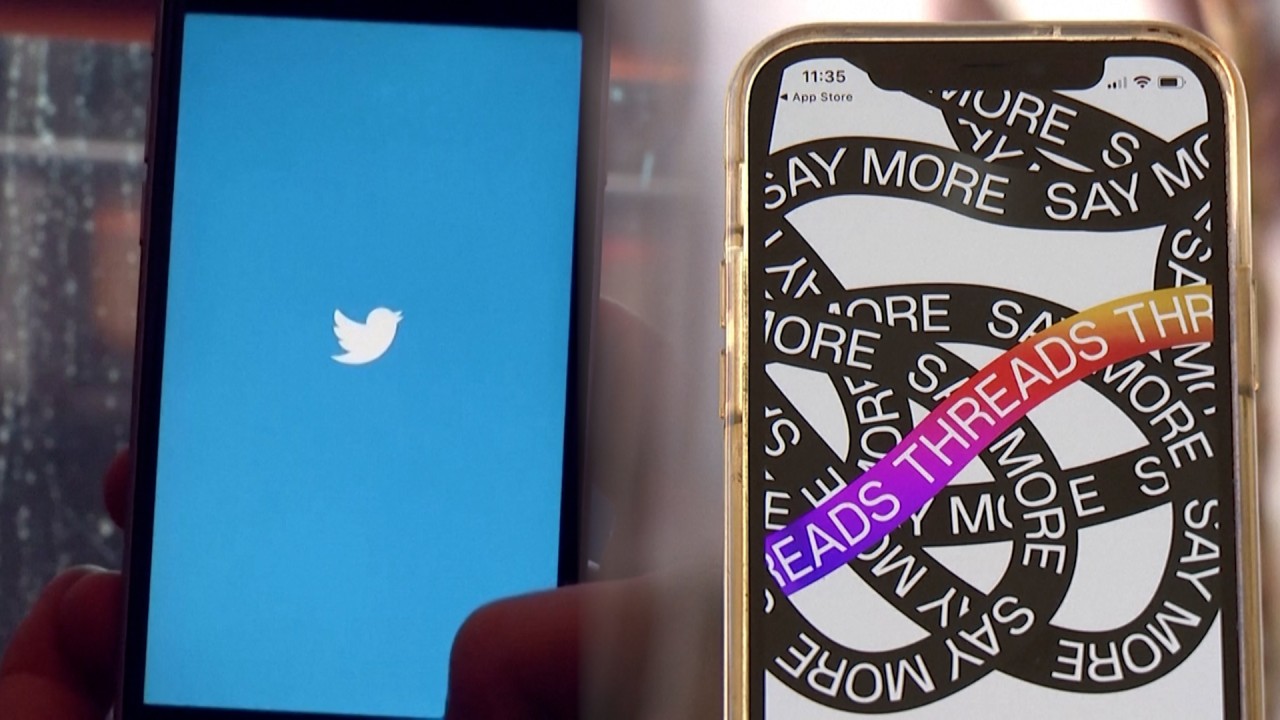
Meta’s Twitter rival Threads tops China’s App Store despite Great Firewall censorship
- Threads, Meta’s Twitter competitor, ranked fourth among social media apps in China on Apple’s iOS store this week
- The Instagram and Facebook sibling app has gained traction in the country even though users must use virtual private networks to access it
Meta’s new Twitter rival, Threads, is topping China’s iOS app charts, despite Western social media apps like Instagram and Facebook being banned in the country by its “Great Firewall”, which regulates the domestic internet.
Threads, launched on Wednesday evening US time, already ranked fourth among free social media apps in Apple’s iOS store in China, and just outside the top 50 of all free apps in the country as of Friday. It sat between Chinese tech giant Tencent’s QQ Mail and Tencent Video.
While apps such as Twitter and Meta’s Facebook and Instagram are downloadable on the iOS app store in China, users in the country cannot access these platform’s overseas servers to use their services.
Meta founder and CEO Mark Zuckerberg had tried to get Facebook back into China after it was banned in the country in 2009. But his efforts – which included hosting China’s then internet regulator in the Facebook headquarters in 2014 – failed to get Facebook accepted in the mainland Chinese market.

Meta’s Threads app functions similarly to Twitter, with text-based posts that can be liked, commented on and shared. Users are able to transfer their followers and user names from Meta’s Instagram.
This could mean that posts from Mastodon servers could be viewed on Threads and vice versa. If Meta follows through on these plans, it could complicate any efforts to comprehensively censor the platform.
Mastodon has also been removed from app stores in China, with a number of its most popular servers blocked in the country. But the network consists of a collection of about 9,000 ever expanding individual servers, with many new and smaller servers often flying under the radar of censors.


